
By Annie Goldsmith
Right now, in an alternate universe, high school students are traveling the country looking at prospective colleges. In any ordinary year, juniors would be touring schools over spring break and seniors would be preparing for admitted students weekends. Even admissions officers would be flying around the nation, attending college fairs and speaking to high schoolers unable to travel. But in the era of COVID-19, these journeys are some of the millions that have been cancelled.
Colleges and students alike are now trying to adapt to a new normal: virtual tours have replaced in-person ones, information sessions are held over Zoom, and students will likely have to make difficult choices about the next four years of their educations without ever setting foot on a campus or meeting a representative in person.
In a recent Scoir survey, 80% of high school juniors and 84% of parents surveyed reported that campus visits are extremely or very important to their college selection process—so, what now? T&C spoke with college admissions experts to get advice for students and parents alike on how to virtually visit and choose a school.
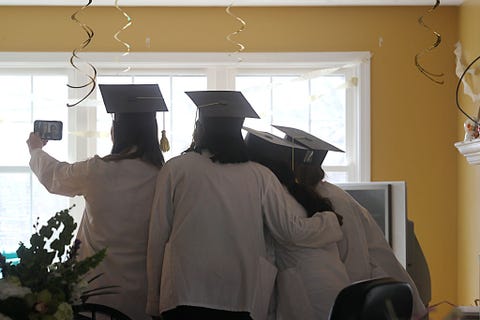
Evaluate Yourself Before Evaluating A School
Before scheduling a virtual tour, it’s important to figure out what kinds of colleges you may be interested in. Jennie Taylor Tucker is the CEO and founder of Pointer, an app designed to inform students about the admissions process and help them customize their search to fit their needs. Her biggest piece of advice for prospective students is to use this time at home to self-evaluate.
“This moment actually provides an opportunity to take pause and reflect on who you are as a person,” Tucker suggested. “This is such a challenging process under normal circumstances, and in this moment, so much of what I think students should be doing is thinking about who they are and what makes them tick. The more self-aware they are, the better their college exploration will be.”
Many college counselors ask students to make lists of qualities they’d value in a school. Aaron Fulk, director of college counseling at Marin Academy, a prestigious independent school in Northern California, asks students to take this questioning a step further.
“I think this is an opportunity for our students to actually do the search process in a more thoughtful way,” Fulk said. “An important thing for our students is to articulate why they want to go to college. Many of our students and parents often scoff when we ask, but a lot of students can’t answer that.”
From there, Fulk asks students to figure out what they want out of college, and then explore online resources through that lens. This is also how students should be approaching the task of putting together their wishlist of schools.
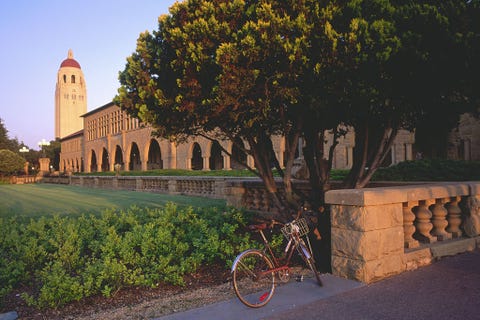
Adam Lips, Director of College Counseling at Stanford’s Online High School, does not see virtual counseling as an impediment to the process, having worked with students via video conference even before the pandemic.
“Initially, it’s finding places that are a good fit for the student, and then when they’re applying, it’s helping them put together a strong application,” Lips said. “I think that all of that can be done extremely effectively in an online environment. I don’t think you have to give much up at all.
Where To Look
Once you’ve listed a few schools of interest, the next step is to go to a college’s website. While these websites are large and overwhelming, there are specific areas targeted to prospective students.
Whitney Soule, Dean of Admissions and Student Aid at Maine’s Bowdoin College, suggests beginning with the school’s admission requirements. She also noted that many schools that usually mandate standardized testing are relaxing those requirements this year (Bowdoin, for one, is test-optional).
“It’s very important to be looking to see how colleges are responding to what would normally be their admission requirements, both curriculum-wise and through standardized testing, so students can feel secure about what they’re going to have available at the time they apply,” Soule said.
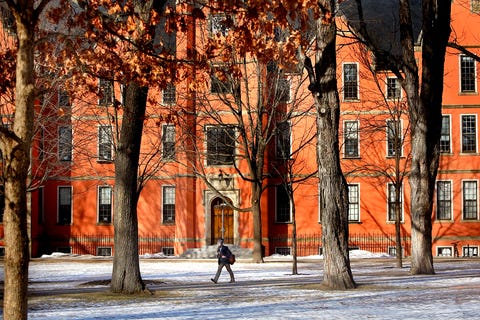
Financial aid is another incredibly important factor to consider as you’re researching your potential schools. Most institutions have a calculator online where students can input their information and get an estimate about the cost of attendance. Soule noted, “[Students] really should be exploring financial aid as much as they should be exploring what the college is like.”
Next on the website, take a look at the school’s curriculum. Especially for seniors trying to decide between schools, Fulk asks his students to dive deeply into requirements and course offerings: “[What] always shocks me, the longer I do this job, is the number of students that are going to leave for college in five or six months and have not looked up the curriculum.”
Finally, investigate what’s important to you. Look at the website pages and social media accounts for potential majors. Research extracurricular options that interest you. Explore housing options. Make sure you’re thoroughly examining whatever aspects of college you, personally, value.
Feel (Almost) Like You’re On Campus
There are a number of ways to explore campus or speak to students and admissions officers online. From online campus tours to Zoom information sessions, colleges are more virtually accessible than ever.
Though this year may be disappointing for some students, Soule noted that tens of thousands of students nationwide each year are unable to visit colleges before attending, so schools have already been trying to provide more virtual options. “It’s important to keep in mind that the lack of opportunity to visit is a new issue for some families and a familiar issue for a lot of families,” she pointed out.
When looking at schools virtually, first join the mailing lists of colleges of interest. That way, prospective students will learn about upcoming virtual programming and options via email, which is particularly crucial in this admissions cycle.
“Recognize that college admissions are creating a lot of content very quickly to try to accommodate the lack of in-person exposure,” Soule said. “The best way for students to have access to that content is to get onto the mailing lists of colleges they might be interested in.”
Once you’re informed, there will likely be plenty of virtual options available. YouVisit offers free virtual campus tours of over six hundred colleges and universities. All of our experts advised that students attend online information sessions through the schools’ admissions offices. And many schools are offering live chat services on their websites, where prospective students can be connected with an admissions officer or student, similar to a customer service experience you might find while online shopping.
Our experts also recommended a number of other online resources and websites, including Niche, College Confidential, Campus Reel, and individual schools’ social media accounts. All of theses sources will provide more information about each school, and many also feature photos and video which enable students to get a sense of the campus. Students can also use Google Maps to look at a school’s surrounding area, Tucker says: “Are there things in your day-to-day now that you want to carry over to your college experience? Does that environment have similar things?”
Experts’ Picks: Online Resources
YouVisit offers virtual campus tours of over 600 colleges and universities. Many tours are accompanied by student guides, providing their commentary on the school.
This site allows you to search colleges based on the qualities you value like cost, major, selectivity, or religion. Niche also provides student reviews and comments.
Tucker recommends students use Google Maps to explore the area surrounding a school of interest. Use the satellite view to explore a college’s landscape, especially if you can’t get there in person.
Pointer helps students take control over their college process and find a school that is the right fit for them, through school profiles, personality quizzes, scheduling help, and self-reflection.
Information sessions with admissions officers should also be a part of your virtual college visit. Knowing the constraints of social distancing, colleges are giving students greater access to their faculty and staff than ever before.
“Schools are trying to be mindful of this moment and be as flexible, adaptive, and empathetic as possible to students,” Tucker said. “So, there are resources on a school-by-school basis that are available in a way that they wouldn’t be normally.”
All of our experts agreed that the best way to get a real sense of a school is to talk to as many people as possible, whether you connect with alumni from your high school or ask a school’s admissions office to connect you with current students and faculty. “It’s not just browsing a website. It’s interactive; it’s a human being who has a personality and a smile and gestures and is answering questions in real time,” Soule said.
Students can tell a lot about a college based on how they’re treated, Lips noted. He asks his students to “make direct contact with people who will give you a good sense of what’s going to be available to you [at this school], and then also how helpful and welcoming the people from those offices are, too.”
A major part of the college search has always been finding a school you connect to personally, as well as academically. That does not change, even though today’s search process is different.
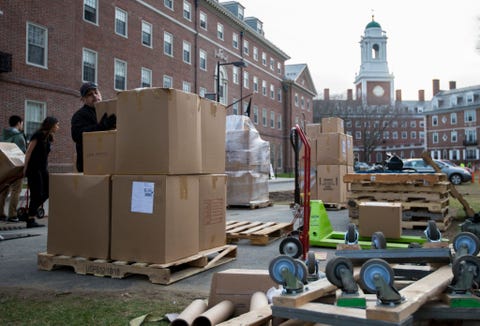
Keep Some Perspective.
Make no mistake—this is an incredibly difficult time to be applying to college. With mounting uncertainties surrounding the coronavirus, colleges are unsure how and in what form the fall semester will take place, and some current seniors are considering taking a gap year to avoid the possibility of beginning college online.
“I’ve definitely had many more students thinking about delaying,” Lips said. “In any year, I think it’s a great idea. Particularly this year, if the college gives that option.”
While 89% of Scoir survey respondents said they had no intention of delaying enrollment, those figures may change as we learn more about the impact of COVID-19. Lips also noted that possible deferrals could have rippling consequences, including lower college admittance rates for the class of 2021, since fewer spots will be available if many current seniors defer admission.
With standardized test dates being cancelled and high schools moving to pass/fail grading systems, there are numerous other complications to consider. But despite all of these hiccups, it’s important for students to keep everything in perspective.
To that end, Fulk recommended students put more of an emphasis on wellness in their college plans—for instance, an incoming freshman might plan out five things they will do to build community once the semester begins.
“Wellness is actually a far better indicator of success and persistence and graduation than even standardized testing or high school GPA,” Fulk said. “We’re trying to talk to our students… more about how you are going to find your community as quickly as possible, and how are you going to find people that you can connect with and trust.”
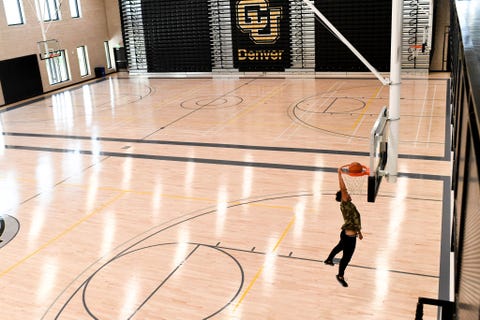
“Your primary concern needs to be your personal health and well-being. You need to do what’s best for you,” Lips said. “Even though people are skeptical of the colleges and cynical about the admissions process, I think [the colleges] try to be reasonable and are going to be accepting and understanding.”
Finally, remember that you are not alone. The whole world has been turned upside down by the coronavirus and everyone is handling it in their own way. Students will react differently, but remember that everyone applying to college right now is going through the same problems.
“I try to remind our juniors that every junior in the country is going through this,” Fulk said. “They shouldn’t feel like they’re behind—certainly they can have all sorts of emotional responses to this. They can be frustrated or angry or disappointed, but it should be unifying. Everyone is experiencing this together.”







